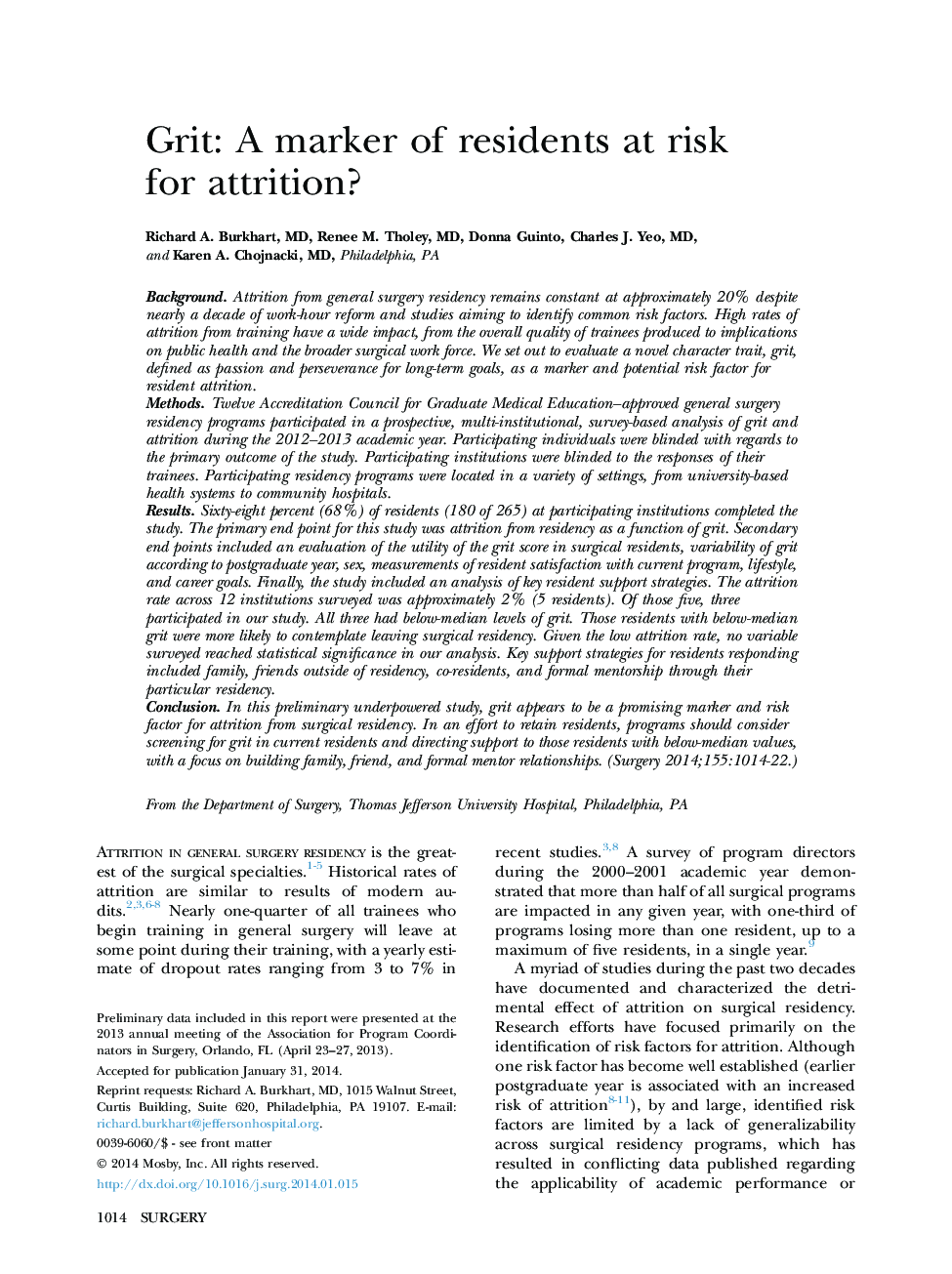| Article ID | Journal | Published Year | Pages | File Type |
|---|---|---|---|---|
| 4308059 | Surgery | 2014 | 9 Pages |
BackgroundAttrition from general surgery residency remains constant at approximately 20% despite nearly a decade of work-hour reform and studies aiming to identify common risk factors. High rates of attrition from training have a wide impact, from the overall quality of trainees produced to implications on public health and the broader surgical work force. We set out to evaluate a novel character trait, grit, defined as passion and perseverance for long-term goals, as a marker and potential risk factor for resident attrition.MethodsTwelve Accreditation Council for Graduate Medical Education–approved general surgery residency programs participated in a prospective, multi-institutional, survey-based analysis of grit and attrition during the 2012–2013 academic year. Participating individuals were blinded with regards to the primary outcome of the study. Participating institutions were blinded to the responses of their trainees. Participating residency programs were located in a variety of settings, from university-based health systems to community hospitals.ResultsSixty-eight percent (68%) of residents (180 of 265) at participating institutions completed the study. The primary end point for this study was attrition from residency as a function of grit. Secondary end points included an evaluation of the utility of the grit score in surgical residents, variability of grit according to postgraduate year, sex, measurements of resident satisfaction with current program, lifestyle, and career goals. Finally, the study included an analysis of key resident support strategies. The attrition rate across 12 institutions surveyed was approximately 2% (5 residents). Of those five, three participated in our study. All three had below-median levels of grit. Those residents with below-median grit were more likely to contemplate leaving surgical residency. Given the low attrition rate, no variable surveyed reached statistical significance in our analysis. Key support strategies for residents responding included family, friends outside of residency, co-residents, and formal mentorship through their particular residency.ConclusionIn this preliminary underpowered study, grit appears to be a promising marker and risk factor for attrition from surgical residency. In an effort to retain residents, programs should consider screening for grit in current residents and directing support to those residents with below-median values, with a focus on building family, friend, and formal mentor relationships.
